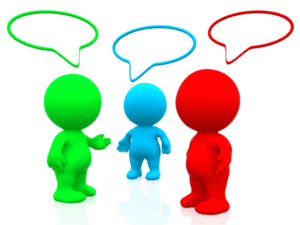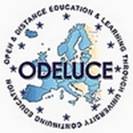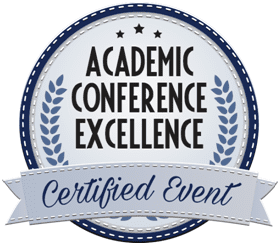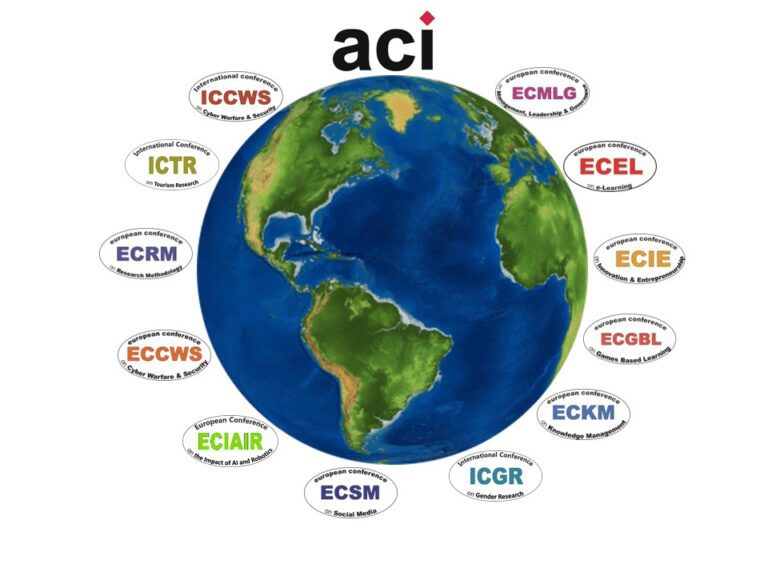30 September-02 October 2026


Darmstadt, Germany
ECGBL 2026
20th European Conference on Games Based Learning
Call for Papers

- Academic Papers
- Case Studies
- Work in-Progress Papers
- PhD Papers
- Masters Papers
- Posters and Presentations
- Non- Academic or Practitioner Contributions
Aims and Scope
ECGBL focuses on the intersection of games, technology, and education, aiming to advance knowledge and innovation in the field. The scope is comprehensive, addressing both the theoretical foundations and practical applications of games in various learning environments, and offering a venue for discussing new challenges and future directions in games-based learning. It is also interdisciplinary, considering the application of game-based learning across society, from traditional education through to business applications, government and healthcare, as well as cultural initiatives. The call for papers for the ECGBL conference asked for contributions that considered the following topics. In addition, the committee welcomed papers on a number of specialist mini-tracks which can be seen at the end of this list.
Games-Based Learning (GBL) Theories and Models
- Exploration of theoretical frameworks underpinning games-based learning.
- Models that explain how and why games enhance learning.
- Cognitive and motivational theories related to gameplay and learning outcomes.
- The role of experiential learning and constructivism in game-based environments.
Game Design for Education
- Best practices in the design and development of educational games.
- Principles of gamification and how they can be applied to non-game contexts.
- User experience (UX) and user interface (UI) considerations for educational games.
- Collaboration between game designers, educators, and subject matter experts.
Serious Games for Skill Development
- Use of serious games to teach complex skills such as problem-solving, critical thinking, and teamwork.
- Case studies of games developed for professional training, including sectors like healthcare, military, and business.
- Games for soft skills development, including communication, empathy, and leadership.
- Assessing the effectiveness of games for skill acquisition and retention.
Gamification in Learning
- Application of gamification techniques to enhance motivation in traditional learning environments.
- Analysis of reward systems, leaderboards, badges, and progression mechanics.
- Gamification in corporate training and adult education.
- Balancing gamification elements with educational objectives.
Assessment and Evaluation in Games-Based Learning
- Methods for assessing learning outcomes in game-based learning environments.
- Use of analytics to measure engagement, progress, and knowledge retention in games.
- Adaptive learning and personalization through games.
- Challenges in standardizing assessment methods for GBL.
Games for Social and Emotional Learning
- Role of games in developing social-emotional skills, including empathy, resilience, and cooperation.
- Multiplayer and collaborative games that foster teamwork and communication.
- Addressing bullying, inclusion, and diversity through games.
- Games designed to build emotional intelligence and self-regulation.
Technology and Innovation in Games-Based Learning
- Emerging technologies in game-based learning, such as virtual reality (VR), augmented reality (AR), and artificial intelligence (AI).
- Use of mobile and tablet games for education.
- Integration of interactive simulations and immersive experiences in learning.
- Exploring the potential of mixed reality and AI-driven adaptive learning systems.
Games for Specific Learner Groups
- Games designed for early childhood education and primary school students.
- GBL approaches for secondary and higher education.
- Accessibility considerations for learners with special needs.
- Games tailored to adult learners and lifelong learning contexts.
Games-Based Learning in Formal and Informal Settings
- The role of games in formal education environments, including schools and universities.
- Use of games in informal and non-traditional learning settings, such as museums, libraries, and after-school programs.
- Community-driven game-based learning initiatives.
- Games for public awareness campaigns and societal impact.
Cultural and Ethical Aspects of Games-Based Learning
- Exploration of cultural contexts and their impact on game-based learning design and reception.
- Ethical considerations in the use of games for education.
- Addressing biases, stereotypes, and representation in educational games.
- Discussion of privacy, data security, and the digital well-being of learners in game-based environments.
Mini Tracks
Educational Escape Rooms
Mini Track Chair: Dr Panagiotis Fotaris, University of Brighton, UK
Educational escape rooms have evolved from simple entertainment experiences into powerful and immersive learning environments. By placing participants in timed challenge-driven scenarios, escape rooms engage learners in authentic problem-solving, collaboration, and creativity. From a pedagogical perspective, escape rooms closely align with social-constructivist and experiential learning theories. Recent research shows that these environments foster motivation, engagement, and flow, while also supporting teamwork, metacognition, and emotional investment. Escape rooms can serve as catalysts for deeper understanding, bridging abstract concepts with hands-on activities and facilitating meaningful interaction between learners and facilitators.
This Research Topic invites empirical studies, theoretical contributions, case studies, and design frameworks that advance our understanding of escape rooms as innovative learning spaces. We especially welcome interdisciplinary and methodological diversity, including mixed-methods approaches, design-based research, and technology-enhanced experiences. Submissions may address physical, digital, hybrid, or fully virtual escape-room designs.
Suggested topics include but are not limited to:
• Applications Across Contexts and Domains: Uses of escape rooms in formal, non-formal, and informal education; discipline-specific adaptations; workplace training; professional development; higher education and K-12 implementations.
• Pedagogical and Theoretical Frameworks: New or refined models explaining how escape rooms support learning; facilitation strategies; debriefing methods; design principles grounded in learning science.
• Technology, AI, and Hybridisation: Integration of digital tools, augmented/virtual reality, and AI-driven NPCs or adaptive puzzle systems; analytics that enable personalised feedback; accessibility through technology.
• Assessment and Learning Outcomes: Measuring cognitive, social, and affective outcomes; collaboration and communication metrics; transfer of learning; long-term impact on learner engagement and problem-solving skills.
• Inclusion, Accessibility, and Universal Design: Designing escape rooms that support diverse learners, including neurodiverse players, learners with disabilities, or multilingual groups; culturally responsive design practices.
• Ethical, Logistical, and Sustainability Considerations: Data ethics in tech-enhanced rooms, equitable access to materials, practical guidelines for scalable implementation, and sustainable puzzle design.
• Innovative Design Approaches: Narrative-driven learning, open-world or branching escape-room structures, hybrid classrooms, gamemaster/facilitator roles, and emerging genres such as research-based escape rooms or assessment escape rooms.
Game-based learning for lifelong learning
Mini Track Chair: Nour El Mawas, University of Lorraine
The term Lifelong Learning holds the idea that learning should occur through a person’s lifetime and that it involves formal and informal domains (Cropley and Knapper, 2021). This is also supported by the European Lifelong Learning Initiative, which defines this term as a “continuously supported process which stimulates and empowers individuals to acquire all the knowledge, values, skills and understanding they will require throughout their lifetimes and to apply them with confidence, creativity and enjoyment in all roles, circumstances and environments” (Watson, 2003). The use of game-based learning in teaching, learning, and training improves learning outcomes and increases learners’ motivation and engagement (Abdul Jabbar and Felicia, 2015).
There are 2 different game-based learning methods (Kafai, 2006): instructionism (gameplay-based learning) and constructionism (game design-based learning). In the instructionist approach, learners play a serious game to learn, whereas in the constructionist approach, they learn by designing their own game. This mini-track will be an opportunity for trainers, teachers and researchers from schools, universities, colleges and companies to share and discuss gameplay-based learning and game design-based learning approaches that enhance lifelong learning.
Suggested topics include but are not limited to:
• The design of games for lifelong learning;
• Theoretical frameworks and/or practical strategies on how games can be used to enhance lifelong teaching and learning;
• The assessment of games for lifelong learning perspectives;
• Learning analytics and educational data mining for lifelong learning games;
• Adaptivity and personalization in lifelong learning games
For more information on, or to submit a, Mini Track, please contact Marti Bell
Important Dates
| Abstract submission deadline | 10 March 2026 |
| Notification of abstract acceptance | 24 March 2026 |
| Full paper due for review | 29 April 2026 |
| Notification of paper acceptance (with any requested changes) | 08 July 2026 |
| Call for Games Closes | 03 May 2026 |
| Notification of Game acceptance | 02 June 2026 |
| Earlybird registration closes | 22 July 2026 |
| Final paper due (with any changes) | 05 August 2026 |
| Final Author payment date | 26 August 2026 |
Keynote Speakers
Conference Contacts
| Academic Enquiries | Professor Dan Remenyi |
| Submission Enquiries | Pauline Philippe |
| Registration Enquiries | Belinda Burchell |
| Other Enquiries | Afua Bosompra |










